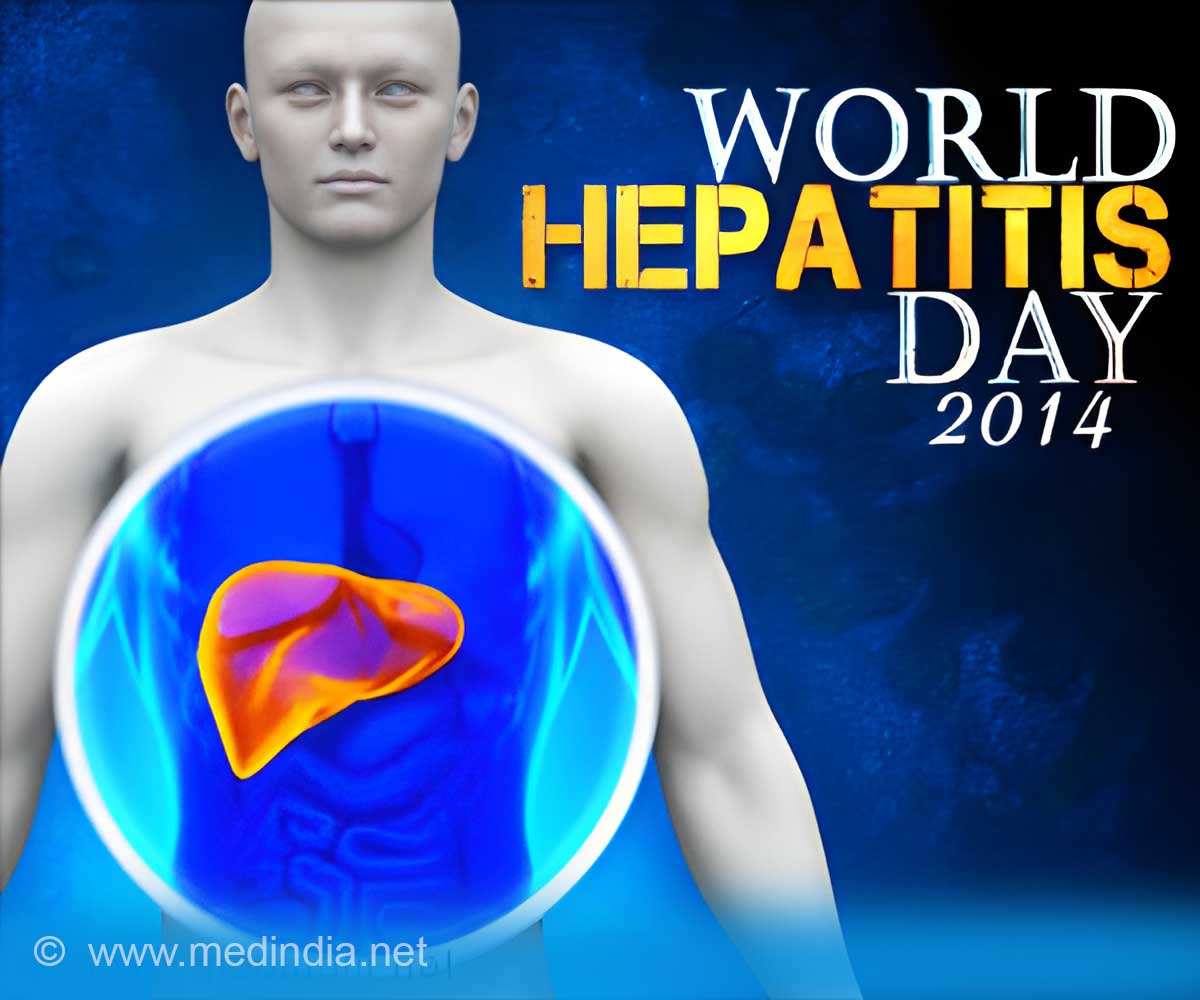World Hepatitis Day 2014 aims to create awareness on testing and treatment of hepatitis. Vaccination for Hepatitis B and other hepatitis infections is one of the major steps taken on this day.

Viral hepatitis is a collective term for a group of diseases known as Hepatitis A, B, C, D and E that causes acute and chronic liver disease. The disease is known to cause about 1.4 million deaths every year. Each of them is transmitted through different routes. Hepatitis A and E spread through contaminated food and water, Hepatitis B and C are transmitted through blood and body fluids and Hepatitis D is an add-on infection along with Hepatitis B. Symptoms of hepatitis include fatigue, loss of appetite, fever and jaundice. While other forms of hepatitis can be cured fully, Hepatitis B and C are the ones that turn chronic and lead to cirrhosis and liver cancer.
Prevention of hepatitis is possible with one or more of the following:
• Provision of safe food and drinking water
• Vaccination
• Provision of sterile injecting equipments
• Proper control of infection
WHO has taken the following measures to prevent and control viral hepatitis:
• Mobilizing resources, raising awareness and promoting partnerships
• Policies and data for determining further course of action
• Execution of plan for screening, treatment and care of patients
• Prevention of transmission by isolation and quick treatment of infected persons
Various health organizations worldwide come together to provide materials and toolkits for campaigning about the disease.
Six themes of organizing a campaign against hepatitis are as follows. These themes can be modified in accordance with the local requirements.
1. Raising awareness
2. Preventive measures – Steps taken and education
3. Treatment – availability and accessibility
4. Vaccination
5. Removing the stigma associated
6. Participation in sporting events
The campaign can be based on an initial survey to find out the areas to be worked on and planning activities for the day. Target group of hepatitis patients can be selected based on group, gender, media or age-group. The type of services or monetary help that can be offered needs to be evaluated before deciding on the action plan. Flyers, pamphlets and posters can be distributed. Media of various types like television, newspapers, social media, etc can be contacted for press release of the activities planned and help from organizations and sponsors can be called for.
Information about when and where the event is held, type of event held, who is organizing it, what makes this event special and relevant to World Hepatitis Day, etc, can be spread out so that relevant and interested people can be gathered to offer or avail the services.
Handing out information, organizing rally, raising funds with exhibitions or carnivals, hepatitis screening camps, concerts and mass vaccination camps, are some of the ways that individuals, groups, NGOs and other relevant organizations can contribute towards the common goal of overcoming the hepatitis virus.
World Hepatitis Day 2014 encourages people to “Think Again” about the viral hepatitis, analyze the current situation about awareness, vulnerability, hygiene and other such environments and situations connected to the disease.
References:
1. http://www.worldhepatitisalliance.org/en/world-hepatitis-day-2014.html
2. http://www.who.int/campaigns/hepatitis-day/2014/event/en/
Source-Medindia















